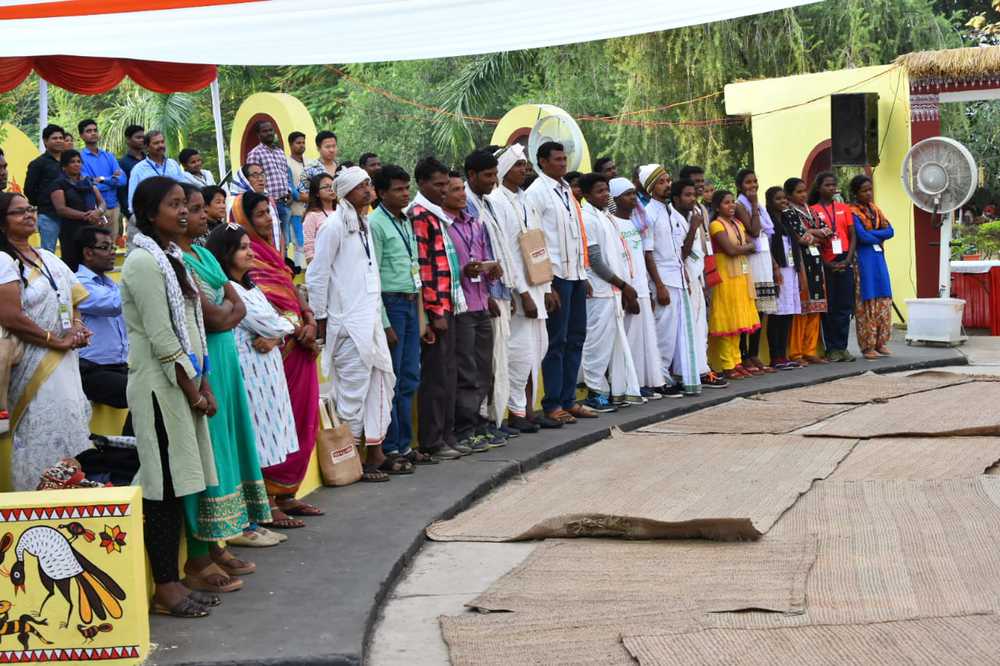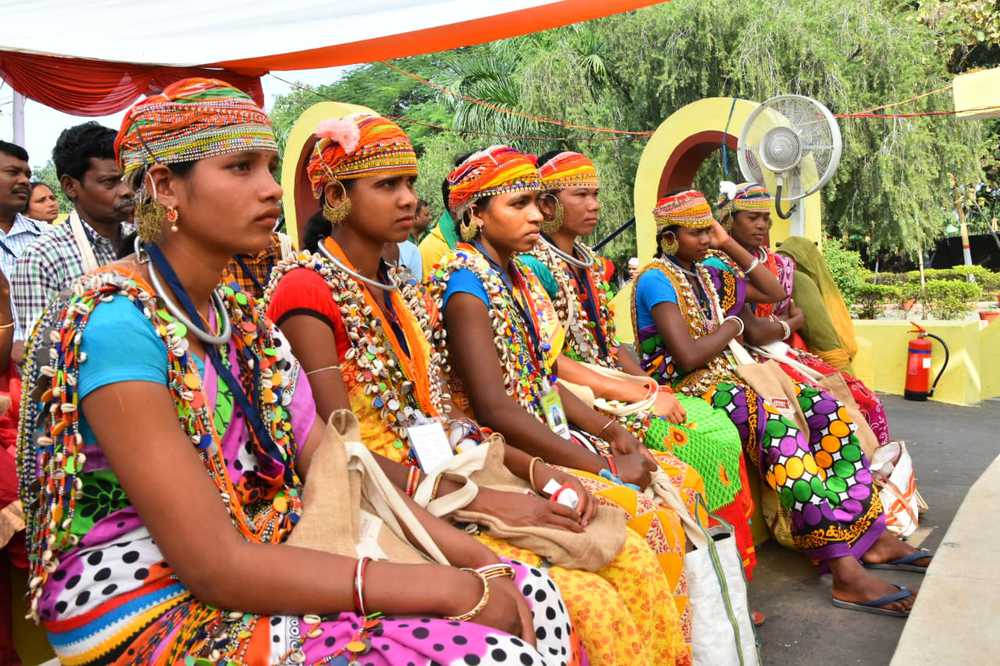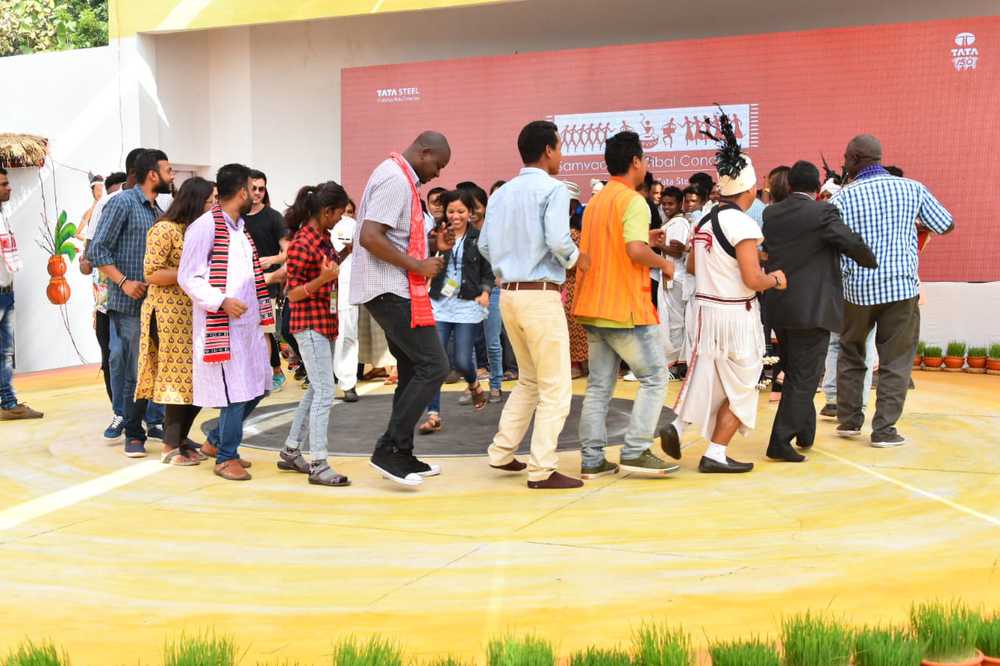Tribal communities from different countries showcase their culture on Samvaad-Day 4
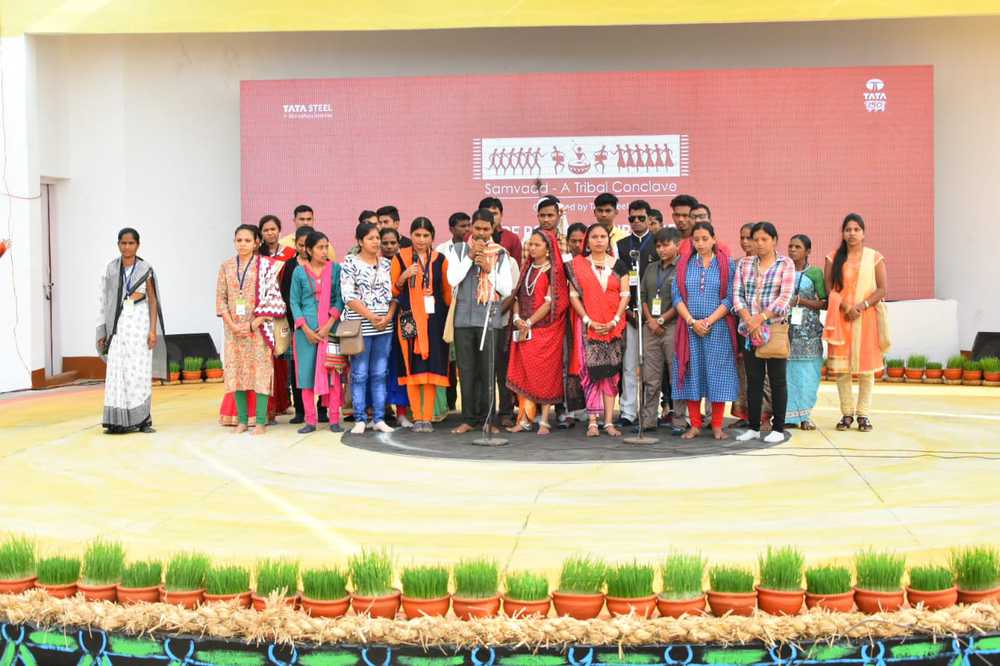
The 4th day of Samvaad, a tribal conclave organized by Tata Steel, witnessed performances by tribal communities of different countries including Cameroon and South Africa.
Four tribes of South Africa-Swazi, Pedi, Xhosa and Zulu-come together to display and present dances. The main performance revolved around healers invoking the Nguni Spirits and connecting with the water, fire and land/sun spirits.
Earlier during the day, Tribal Culture Centre (TCC) saw young men and women from the Maram Naga tribe from Manipur perform their traditional dance showcasing the distinctive culture, custom and tradition. Tribal community performers from the Nilgiri and Western Ghats depicted the story of Ramayana through their performance-Mullu-Kurumba. The Rabhas from Assam performed Farkanti to honour those who lost their lives in the battlefield. On the international front, participants from New Zealand performed Hakka dance which is a gesture of welcome and thanksgiving.
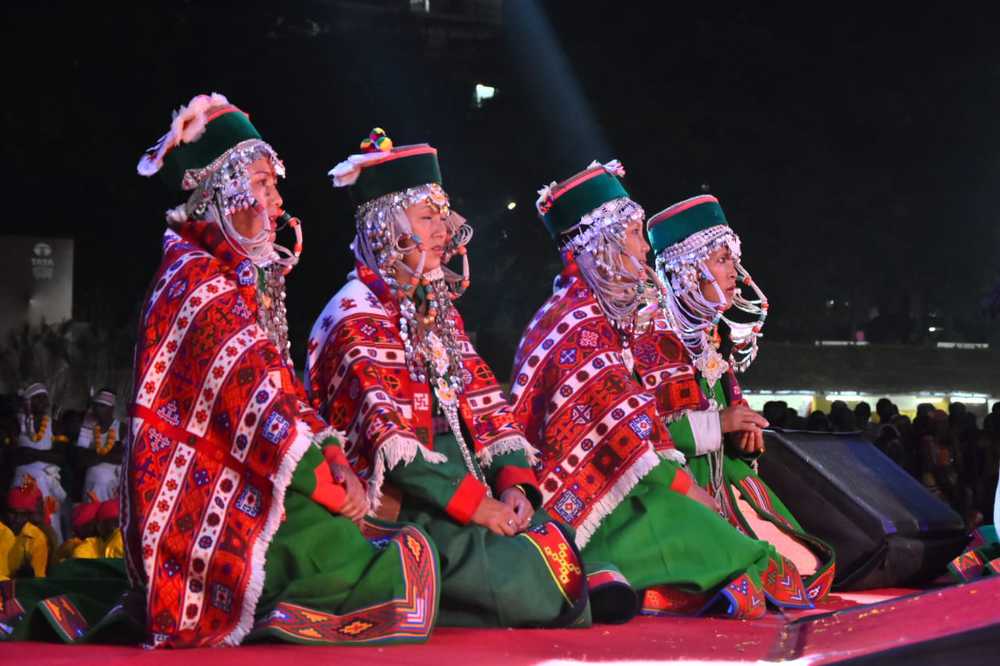
Today’s deliberations at TCC centered around the theme ‘Tribal Perspectives on Government and Development’ where in sessions on different issues like ‘Learning from incredible tales of collective struggle, sacrifice and success among tribal communities’, ‘stories and experiences from participants on governance and development’, ‘stories and experiences from participants on governance and development’ were held. A special Munda-Manki experience sharing session organised at the TCC enlightened those present with tribal community perspectives on governance and development.
In the evening, Jamshedpur citizens thronged the Gopal Maidan Samvaad venue in large numbers and experienced the cultural extravaganza, while also sampling the delicious tribal cuisine on offer. Visitors also flocked in large numbers to the tribal healing and handicraft stalls. It was heartening to see families take part in the event and enjoy themselves.
Members of Dhuruwa, Bonda and Saura tribe from Odisha performed their traditional dance while tribes from Assam showcased their culture through Chah Baganer Jhumoor (from tea tribes), to the cheer and appreciation of the audience present. Rabha tribal community from Assam performed Dhawa dance which is performed as a ritual connected to warfare. Lodha tribe from West Bengal performed the dang Nritya.
Day 5 Highlights
- Handicraft Workshop
- Tribal Healers’ Workshop
- Tribal Art and craft
- Tribal Medicinal Haat
- Grab a bite at the Food Stalls
- Evening Soiree
About Tata Steel
Tata Steel Group is among the top global steel companies with an annual crude steel capacity of 27 million tonnes per annum (MTPA) as on March 31, 2018. It is the world's second-most geographically-diversified steel producer, with operations in 26 countries and a commercial presence in over 50 countries. The Group recorded a consolidated turnover of US $20.41 billion (INR 133,016 crore) in FY18. Tata Steel Group is spread across five continents with an employee base of nearly 74,000. Tata Steel retained Industry Leader position in FY18 and ranked second overall in the DJSI assessment, 2017. The Company has been recognised as the Climate Disclosure Leader in ‘Steel category’ by CDP (2017). Besides being a member of the World Steel Climate Action Programme, Tata Steel was felicitated with several awards including the Prime Minister’s Trophy for the best performing integrated steel plant for 2014-15 and 2015-16, Best Risk Management by CNBC TV18 (2018) and ‘Corporate Strategy Award’ by Mint (2018). The Company also received the ‘Most Ethical Company’ award from Ethisphere Institute for the sixth time (2018), Steel Sustainability Champions (2017) by the World Steel Association, Dun & Bradstreet Corporate Awards (2017 & 2018), Golden Peacock HR Excellence Award by Institute of Directors (2017) as well as 'Asia's Best Integrated Report' award by the Asia Sustainability Reporting Awards (2017), among several others.
Disclaimer
Statements in this press release describing the Company’s performance may be “forward looking statements” within the meaning of applicable securities laws and regulations. Actual results may differ materially from those directly or indirectly expressed, inferred or implied. Important factors that could make a difference to the Company’s operations include, among others, economic conditions affecting demand/ supply and price conditions in the domestic and overseas markets in which the Company operates, changes in or due to the environment, Government regulations, laws, statutes, judicial pronouncements and/ or other incidental factors.
